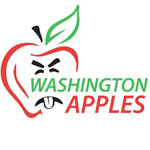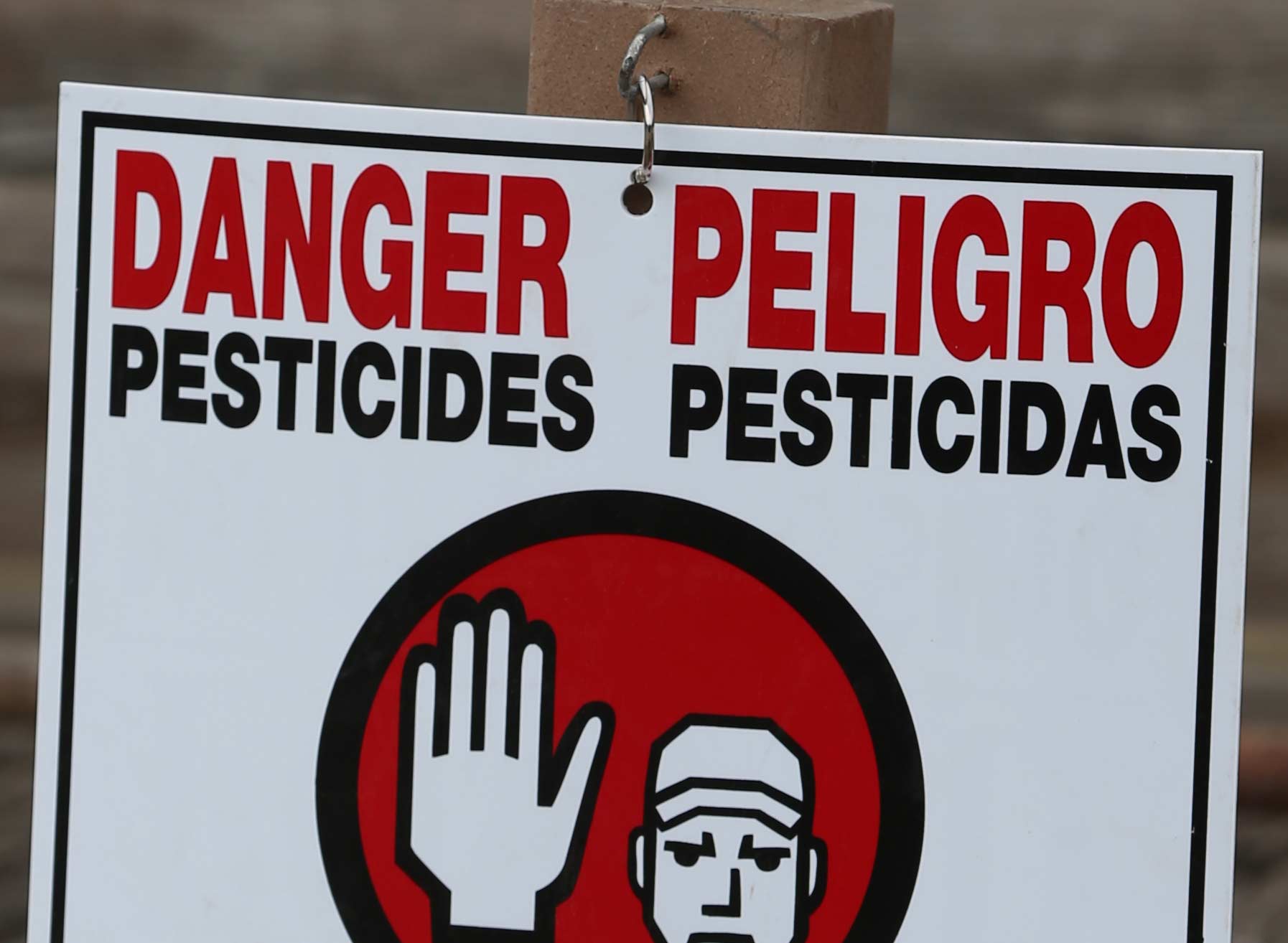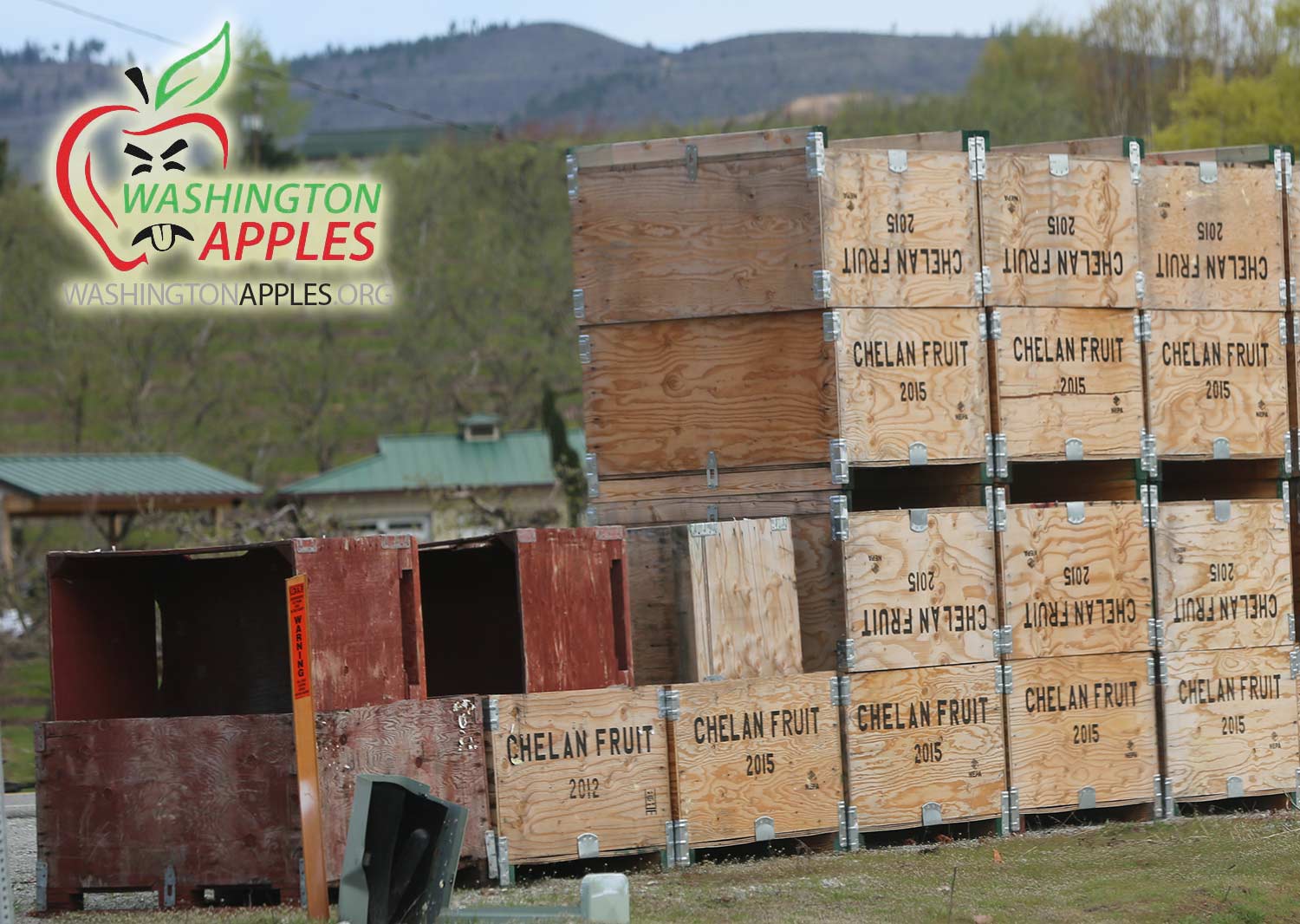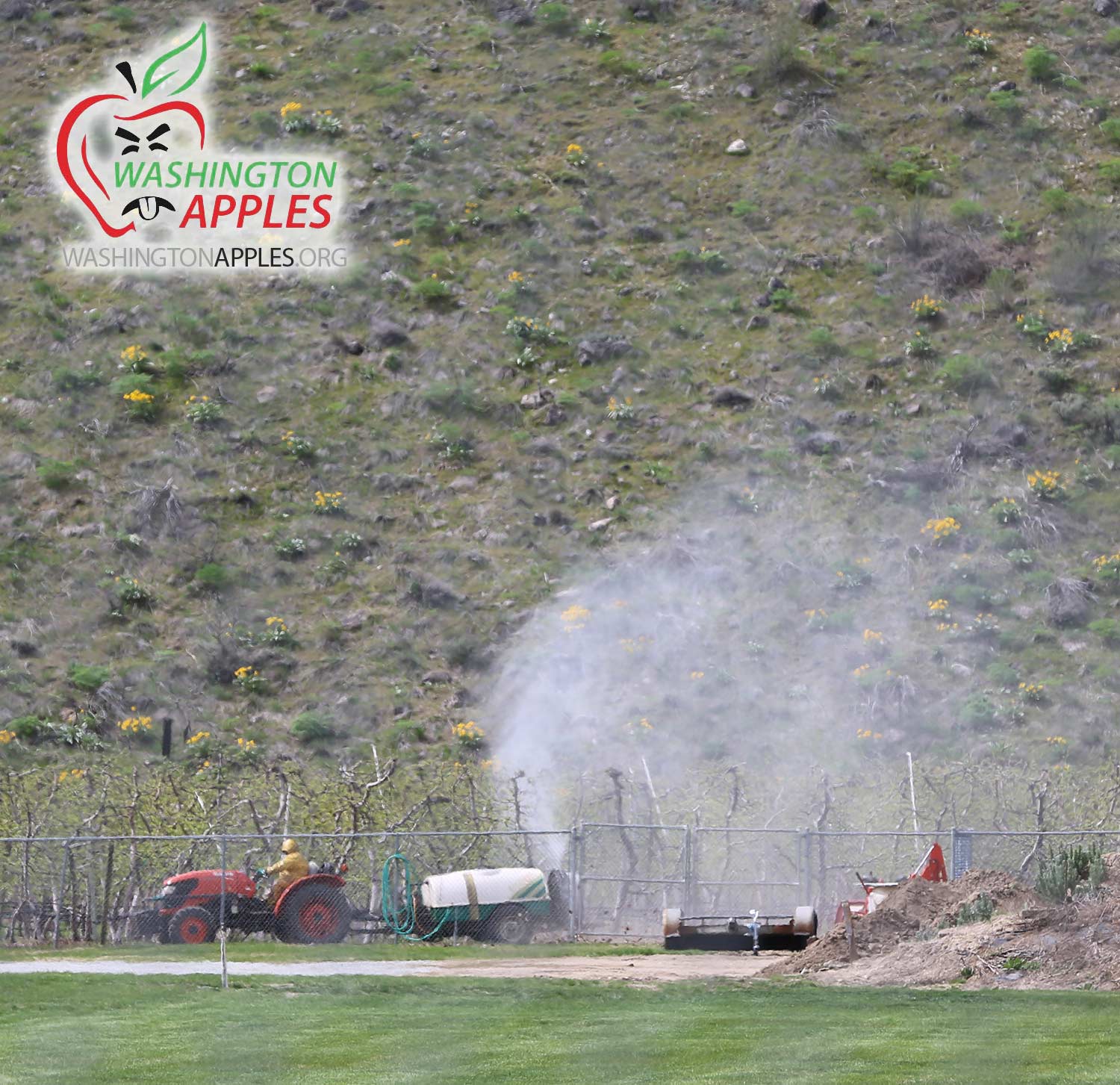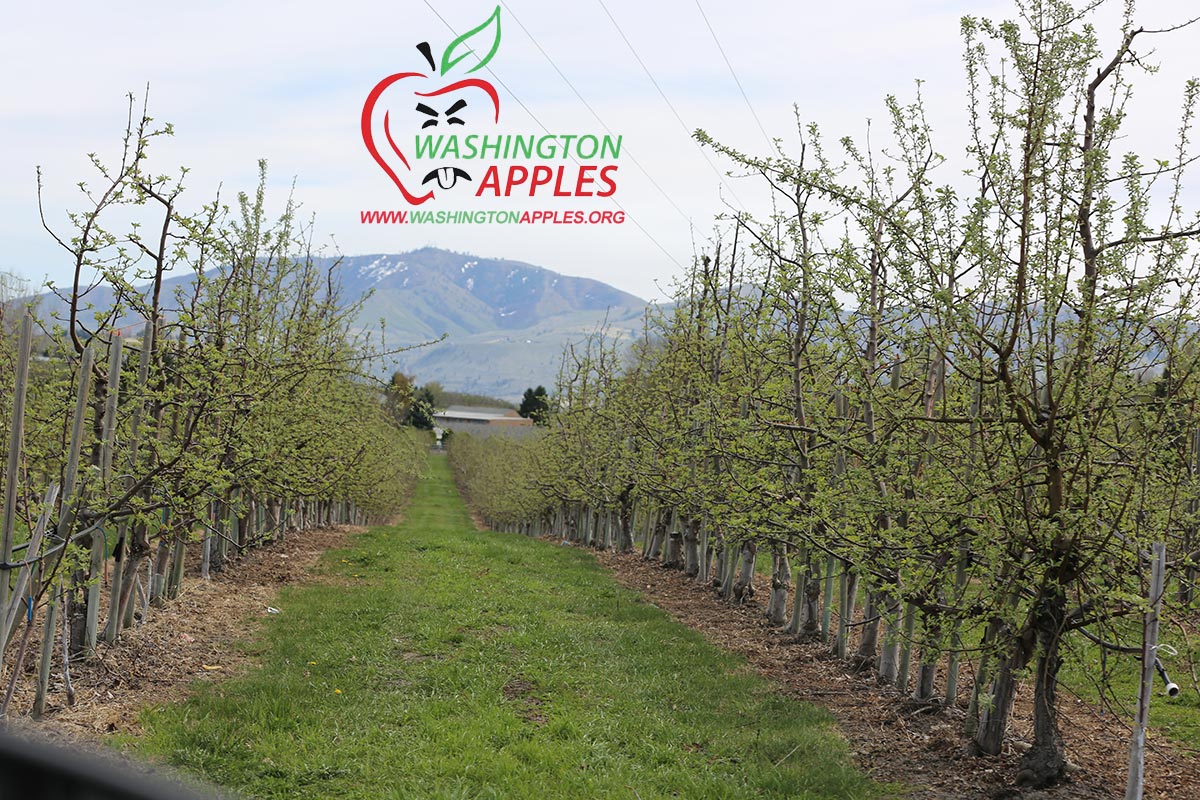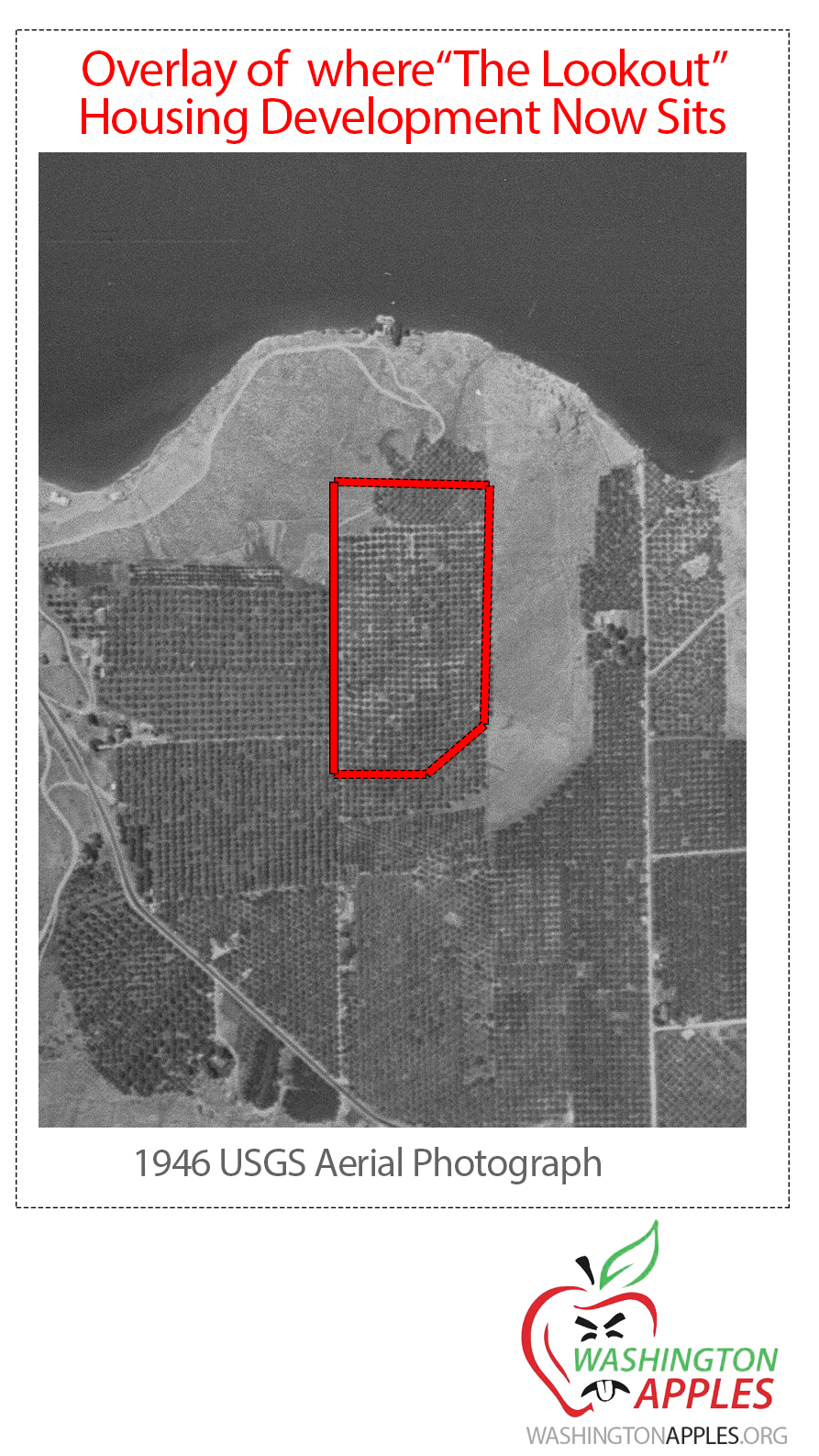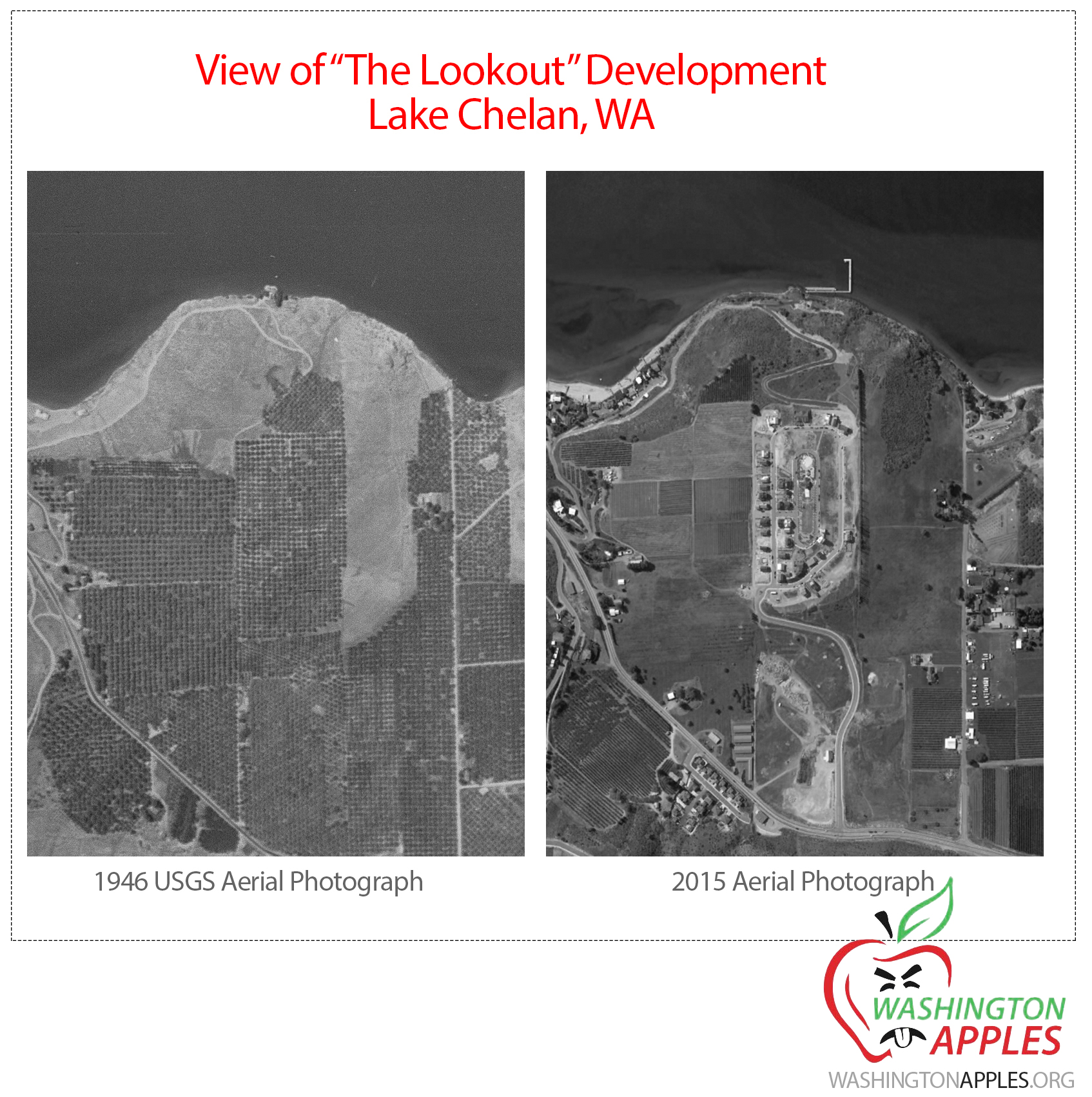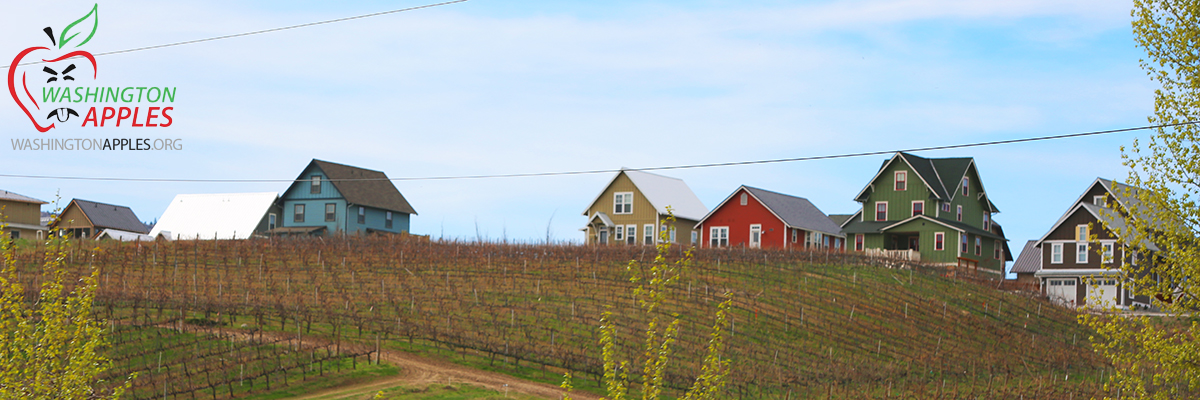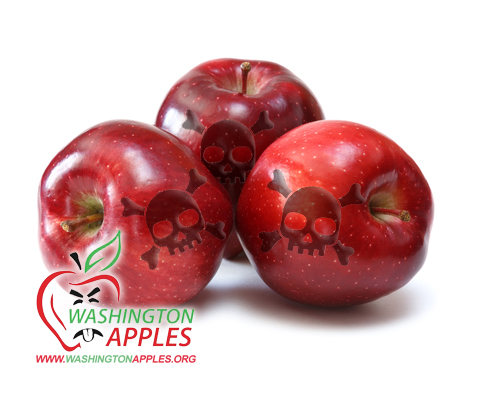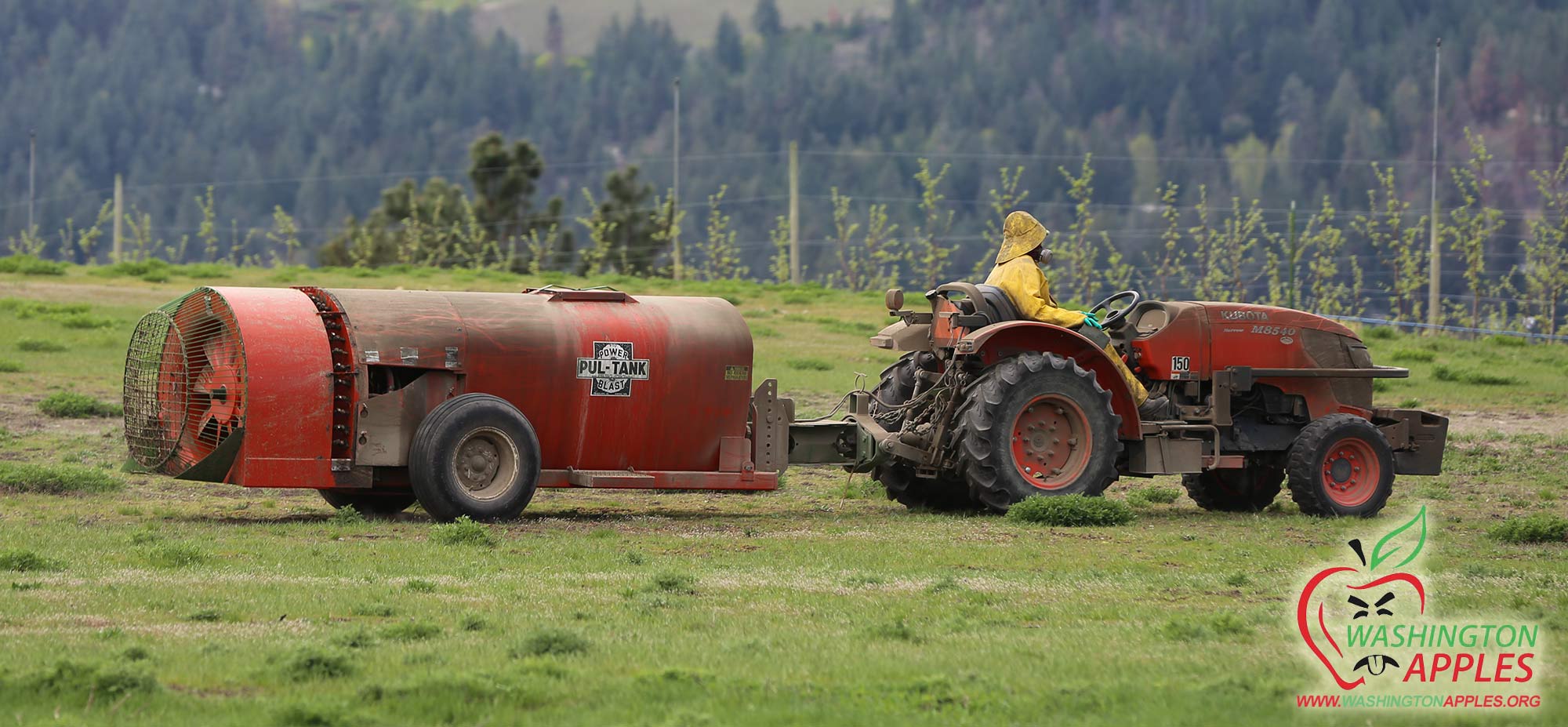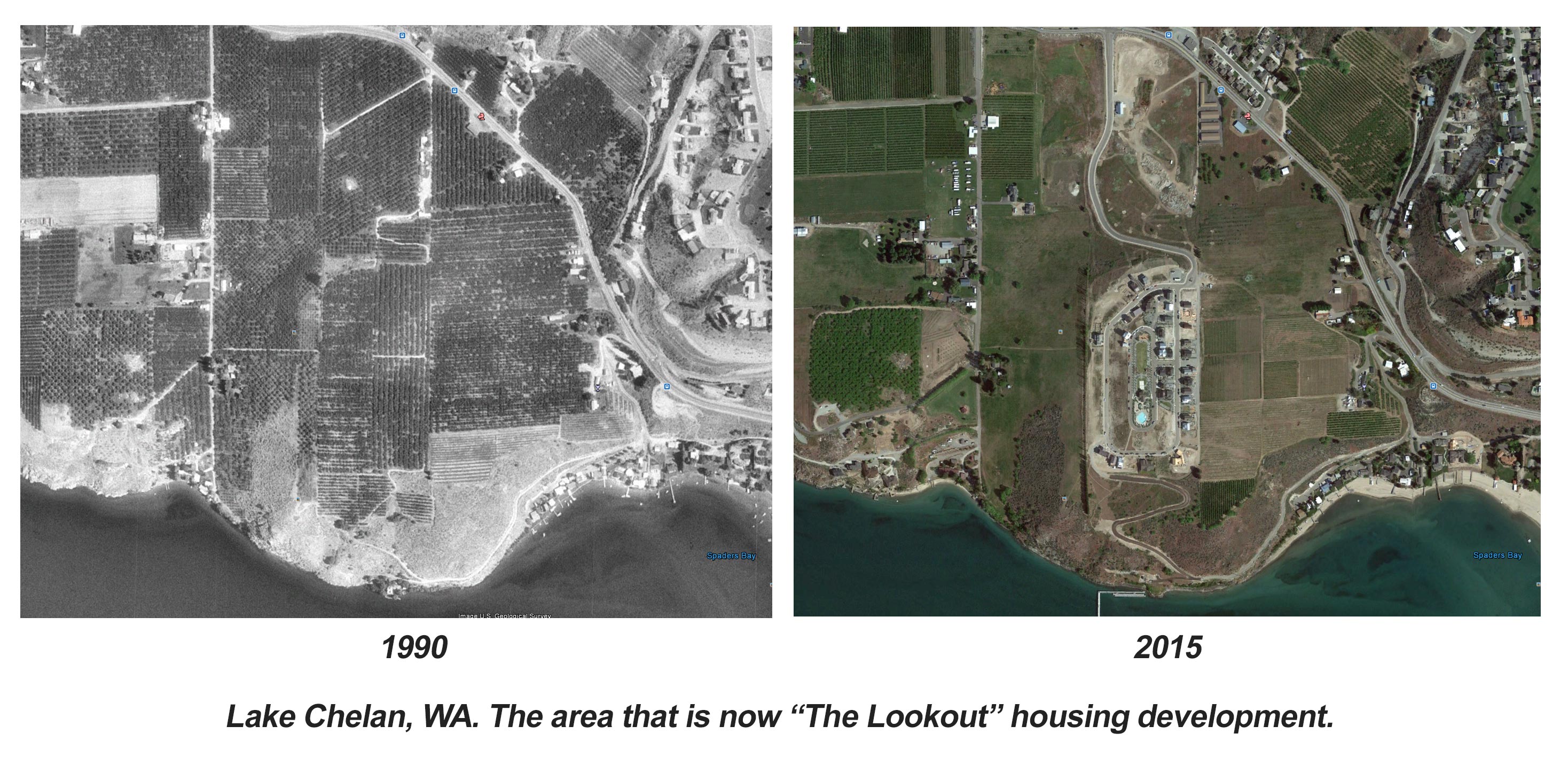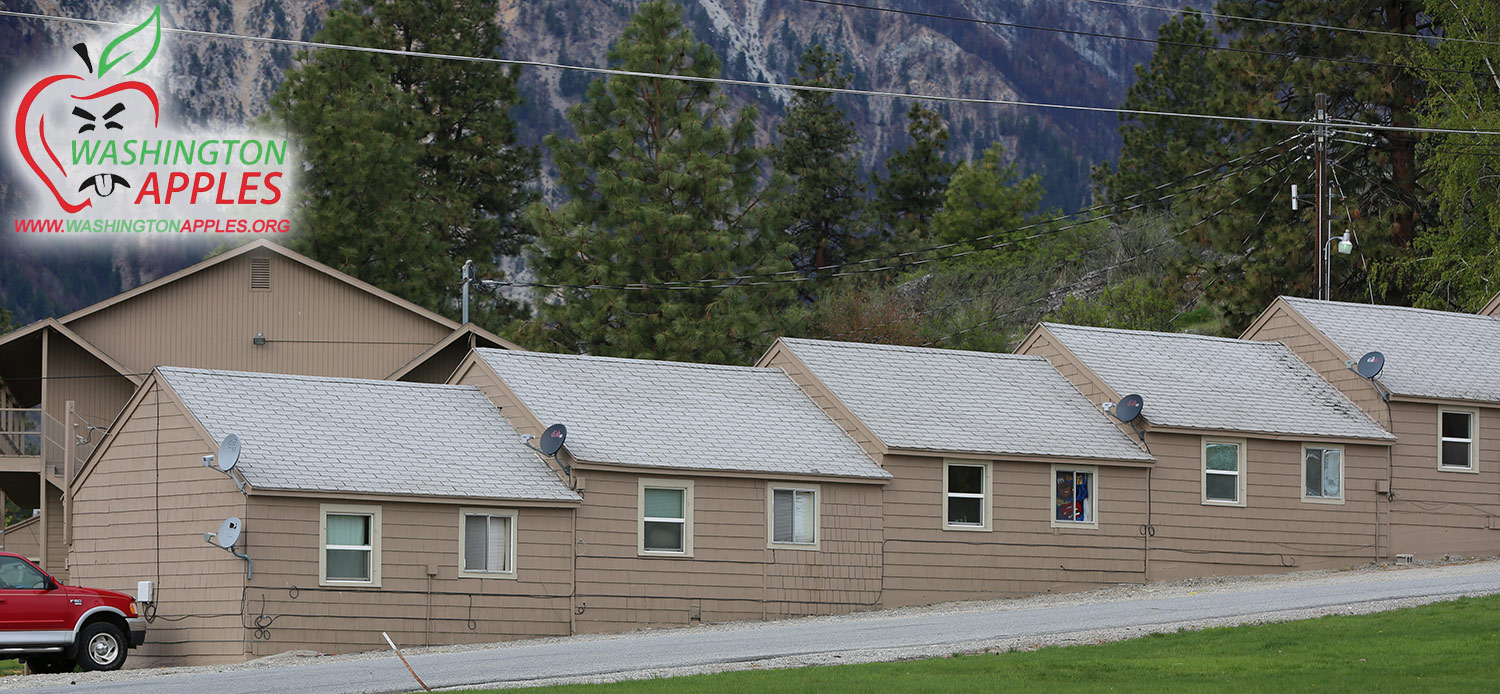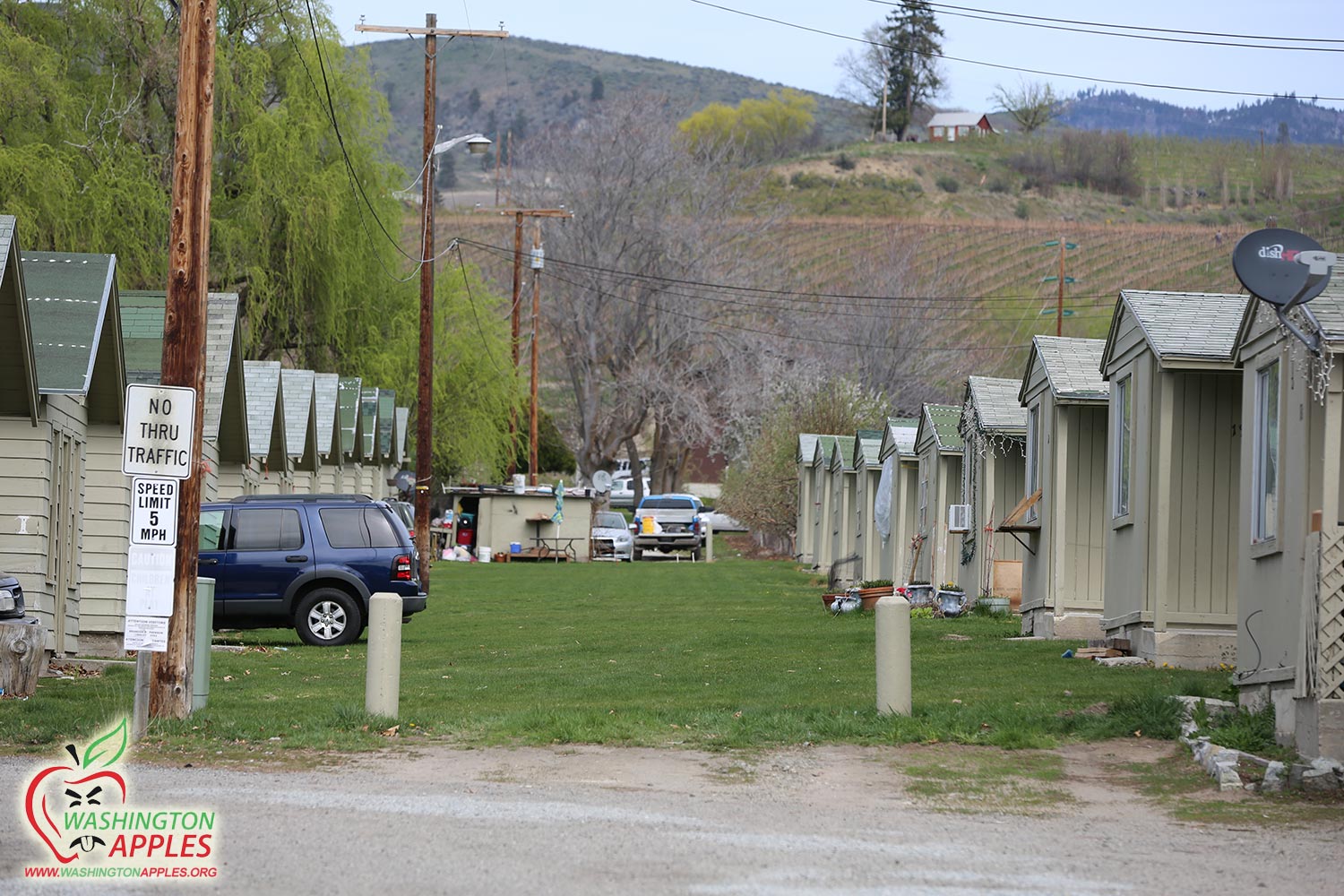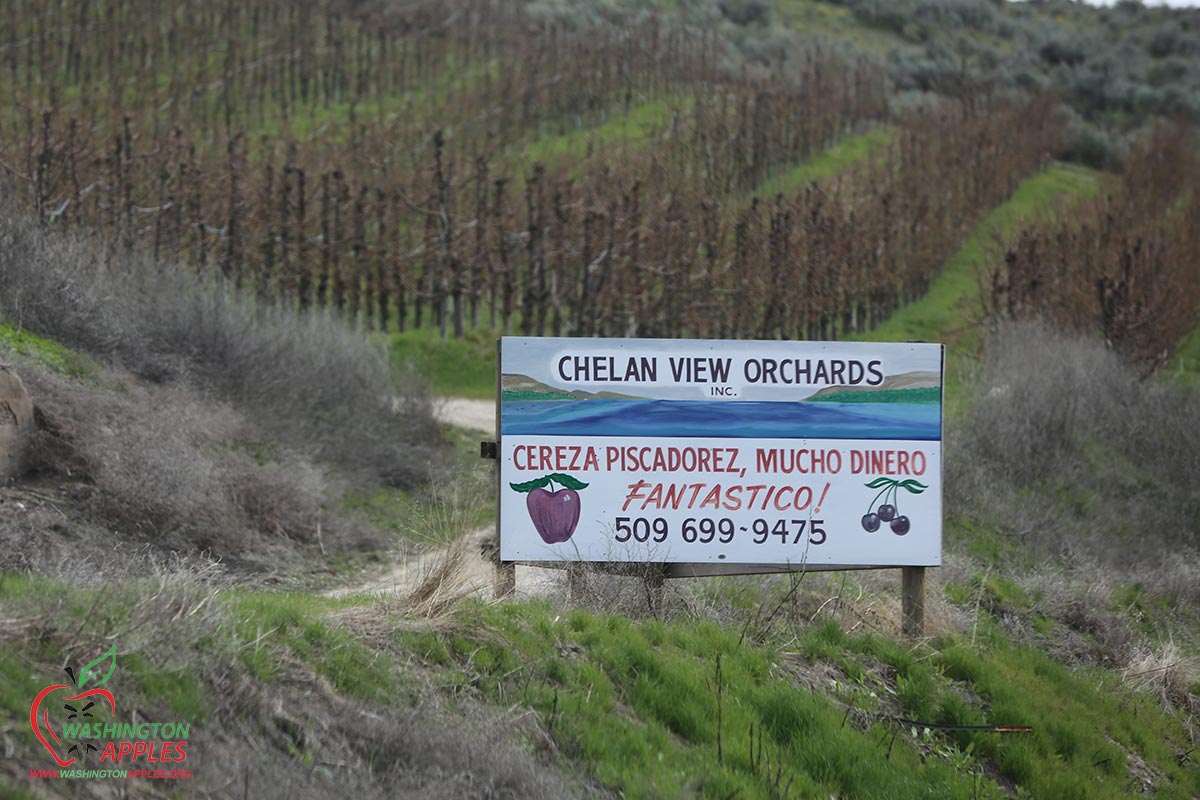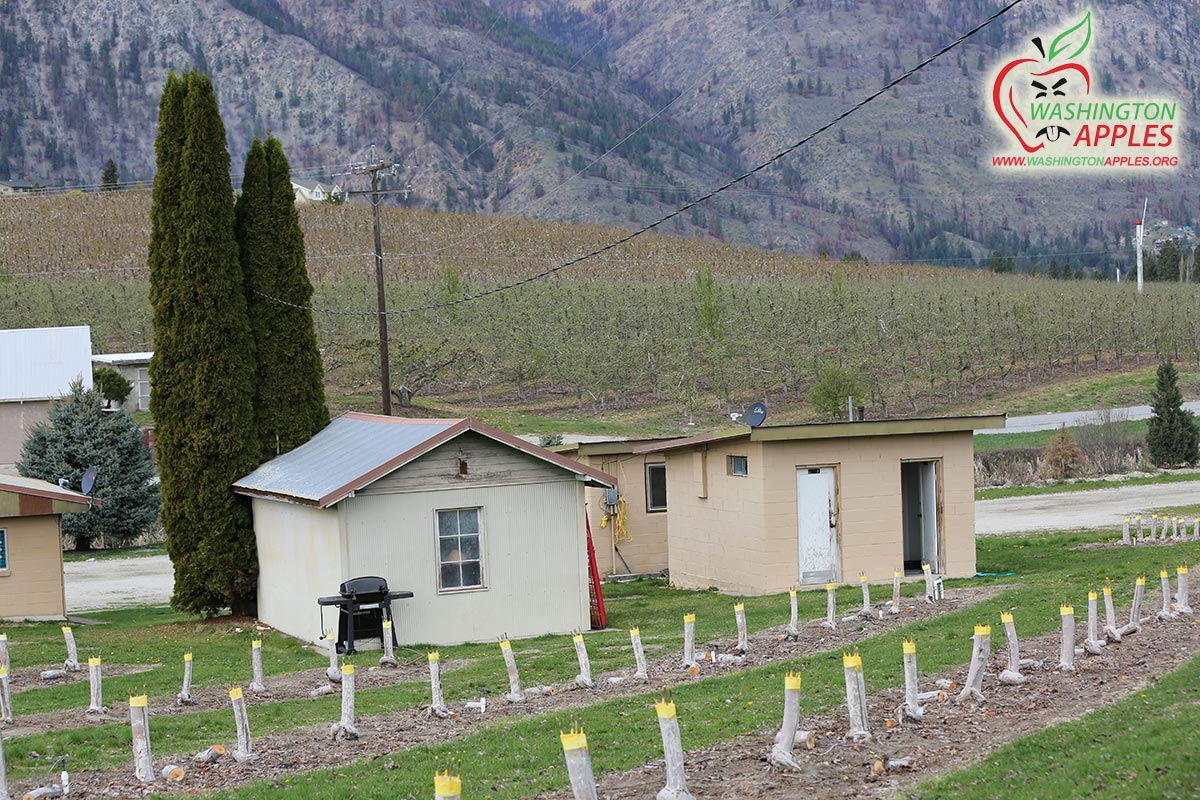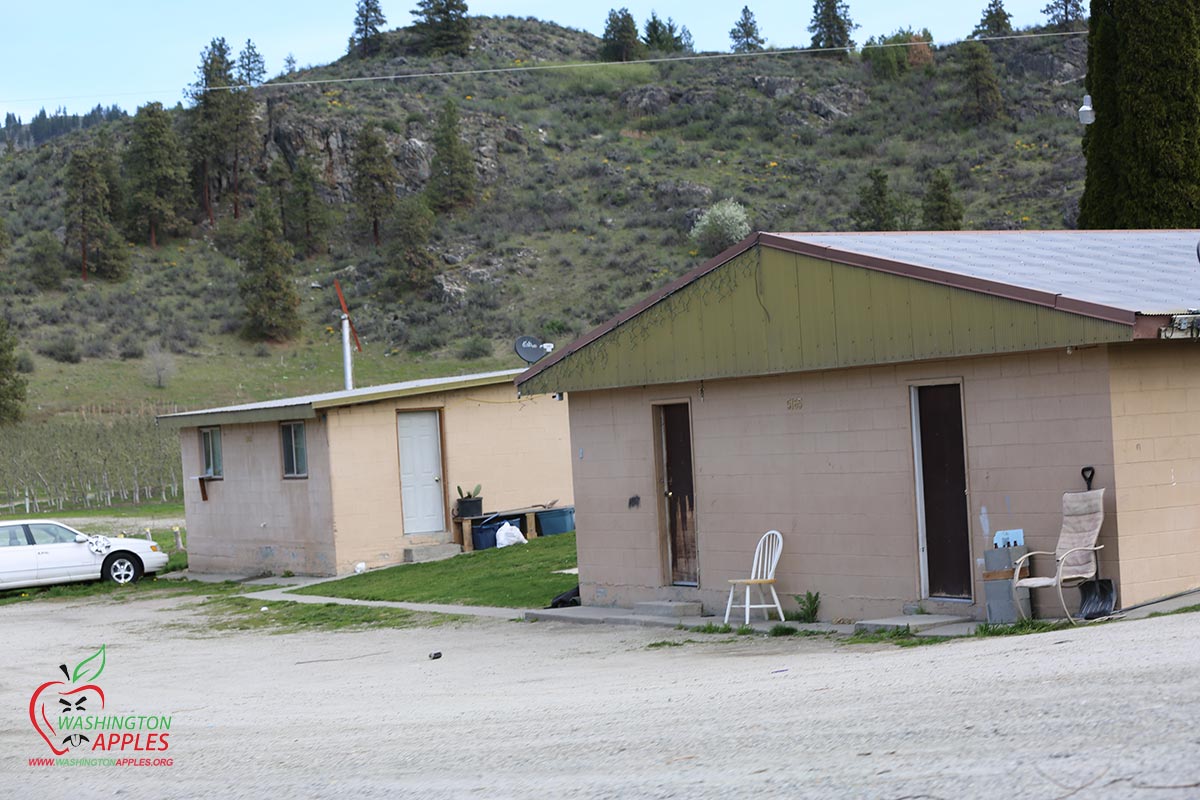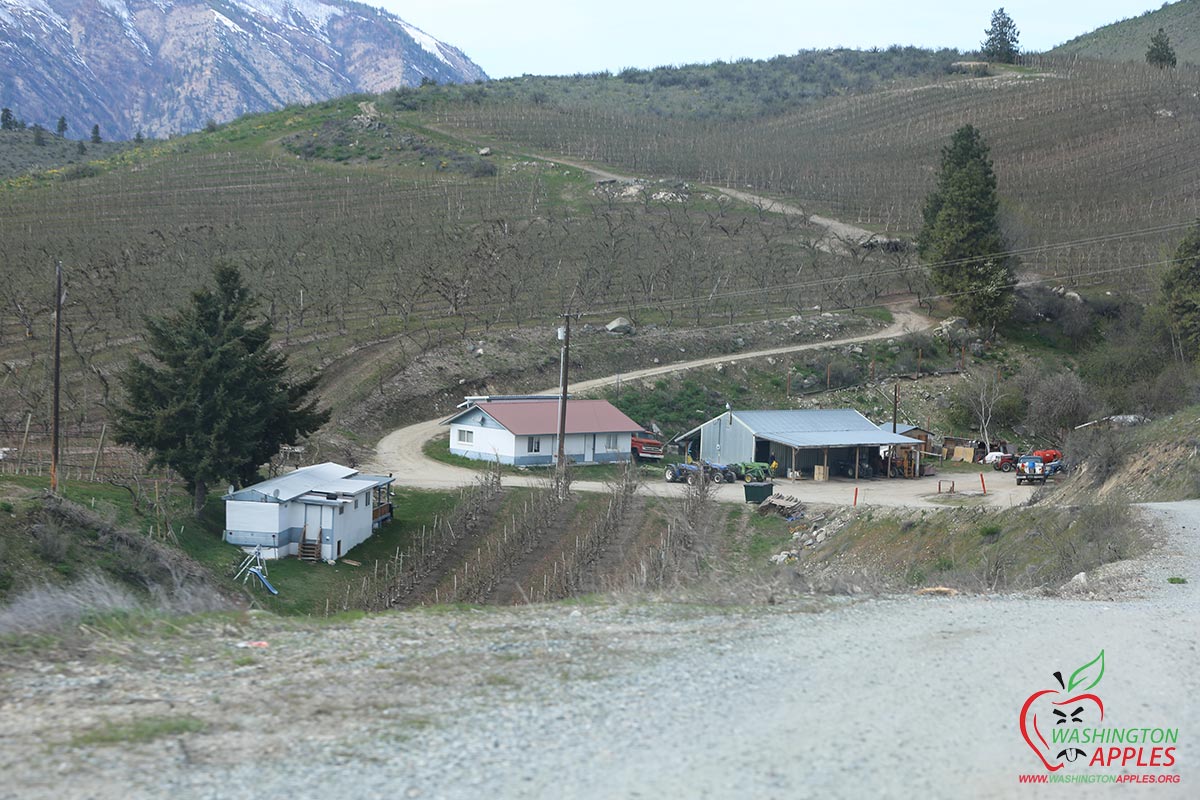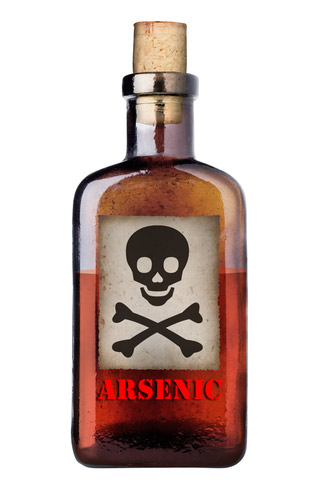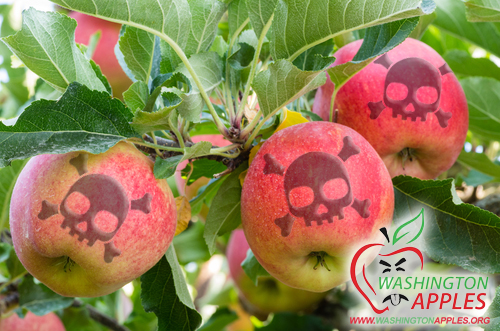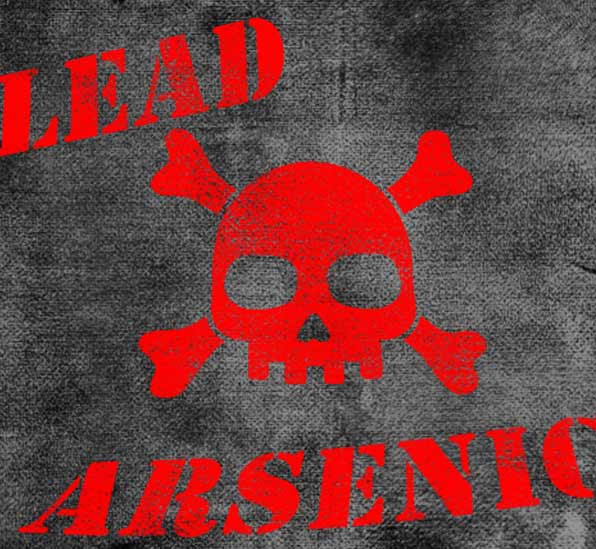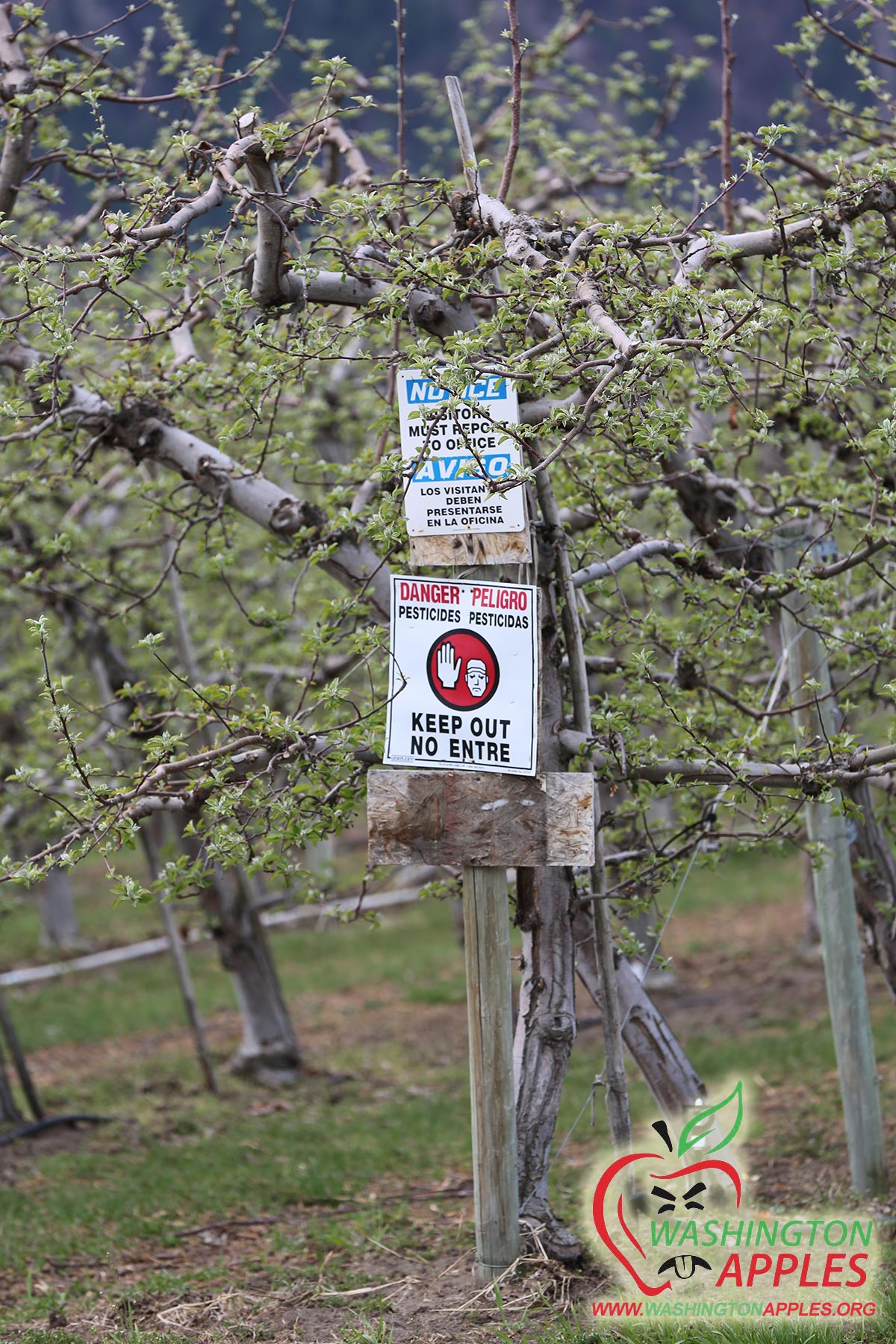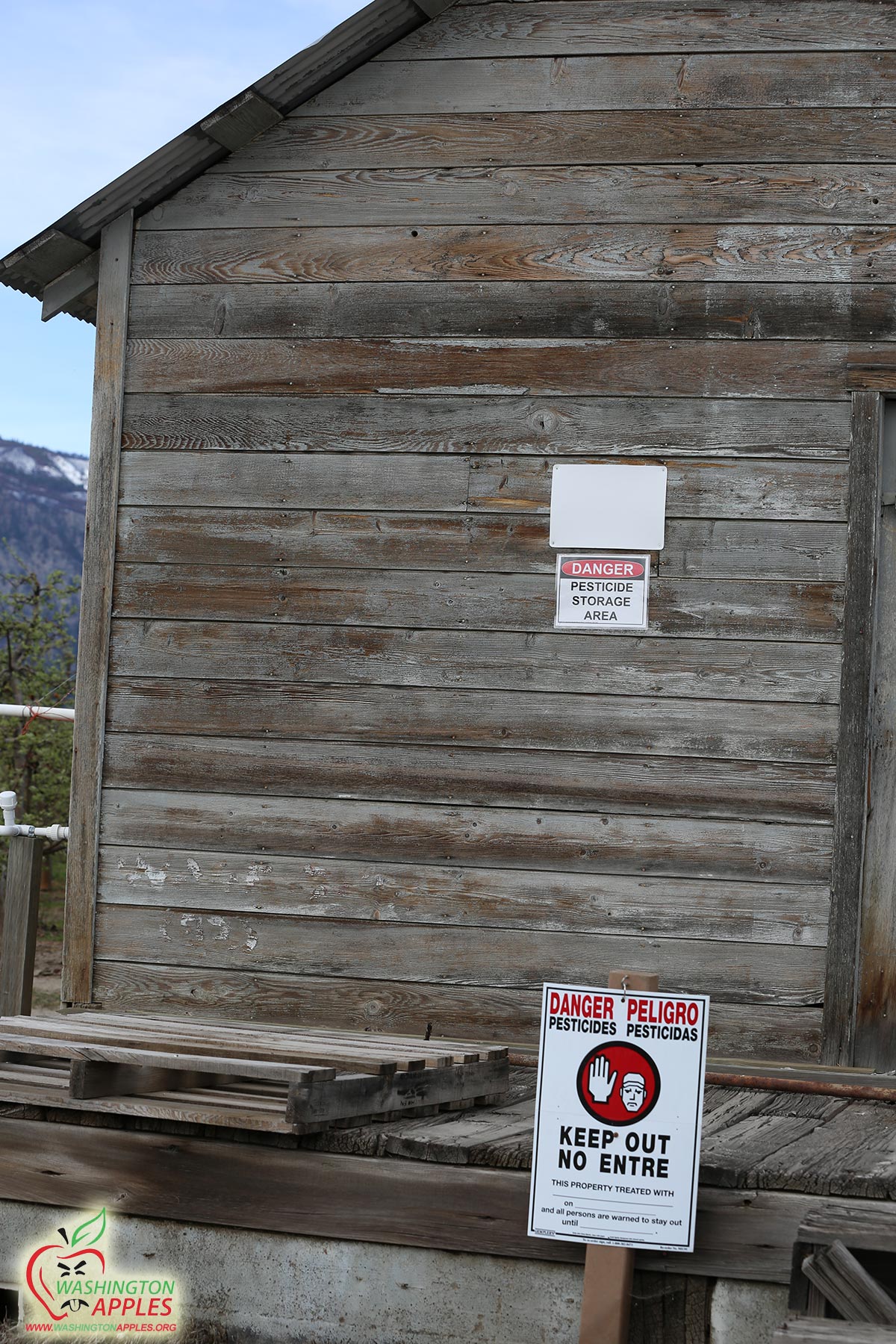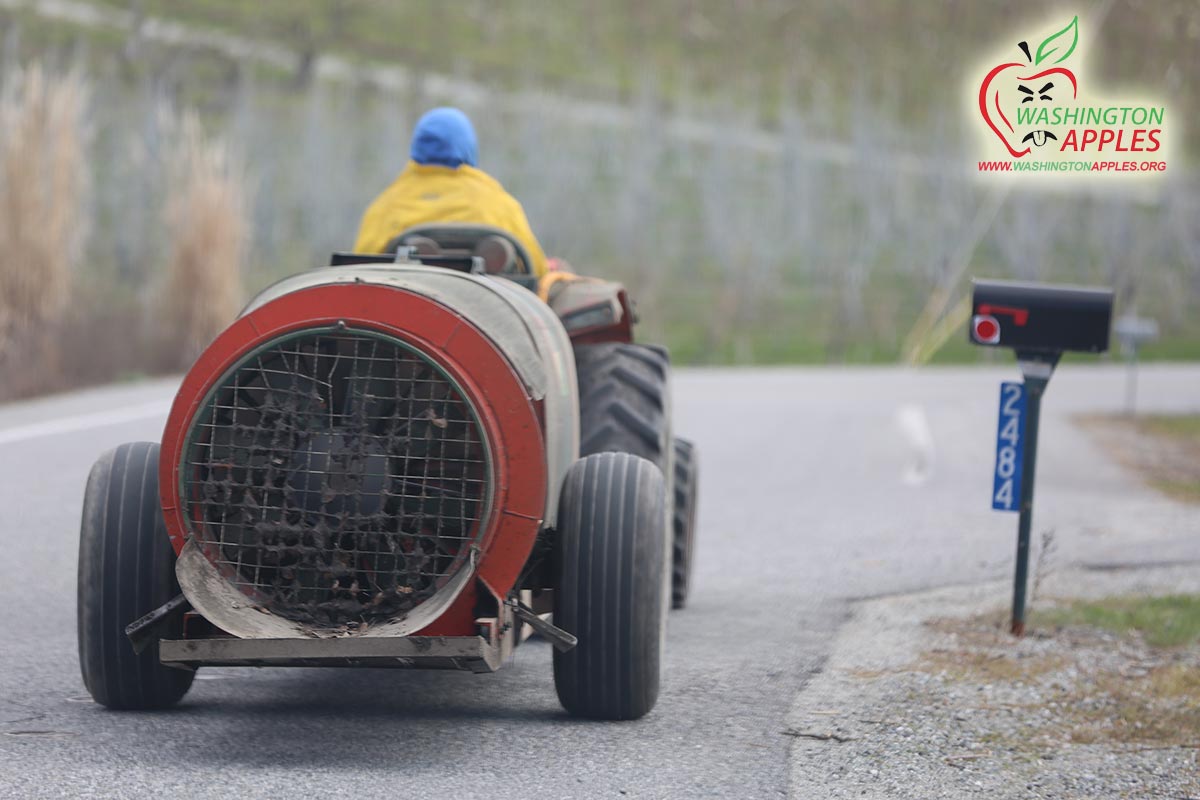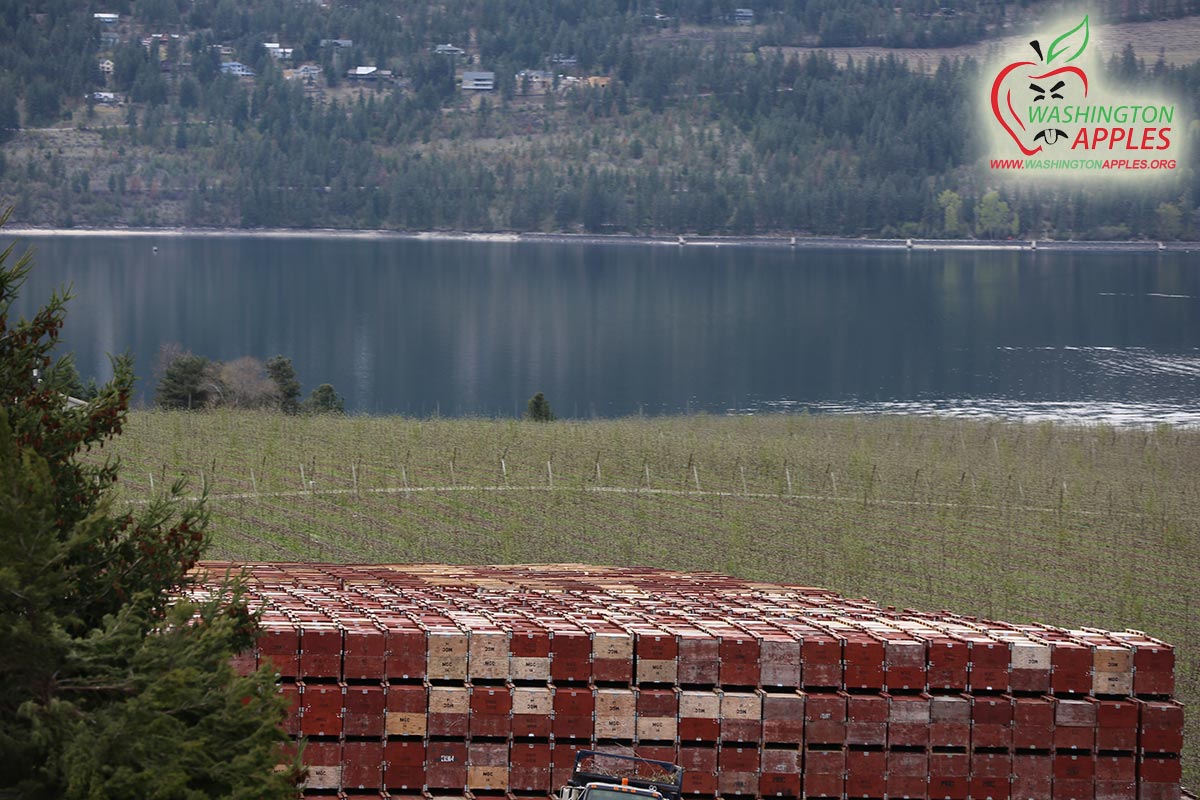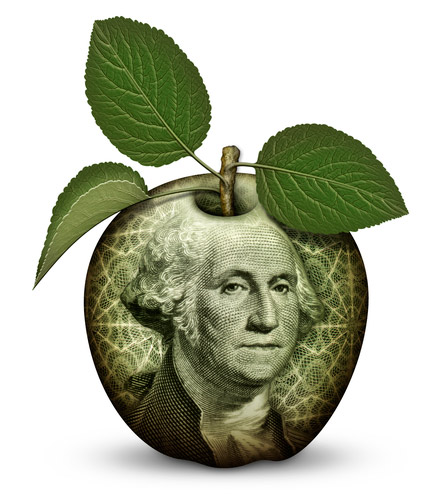So why are apple growers tainting the paradise that is Eastern Washington (beautiful areas like Lake Chelan, Manson, Yakima, Wenatchee, Orondo, Brewster, etc) with the continued use of toxic chemicals?
When I think of an apple grower (and I have met plenty) I think of a really hard-working and salt-of-the-earth person. Usually these people are full of common sense, and have extremely great character and moral values. So why are they clinging to this form of agriculture that is really “chemo-culture”; so heavily reliant upon chemicals?
It’s partly driven by the almighty dollar, and partly by willful blindness and a tendency to want to look the other way. Most growers see their farming as a nobel “way of life”. It’s hard for apple growers to admit that this “way of life” largely involves the use of toxic chemicals. And there are plenty of excuses to help look the other way.
Here are some common excuses I have heard from orchardists about the use of chemicals and pesticides, and my rebuttals:
1) We’ve been doing this a long time. Ahh… the time argument. Because you have been doing something for a long time, it somehow makes it right? Didn’t the South use that argument for Slavery in the 1860s? They sure did, but it did not make Slavery any more morally right. People smoked cigarettes for a “long time” and it took decades of awareness campaigns, and governmental intervention to bring out the truth. Now people recognize that smoking is a disgusting and cancer-causing habit. Just because people have done something for a long time, does not make it right.
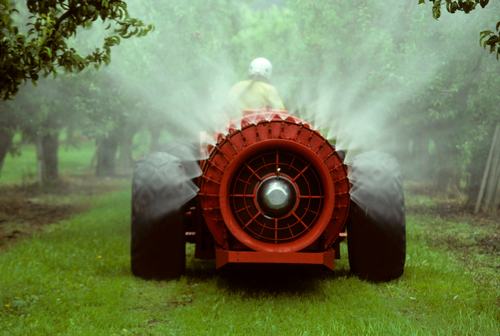
2) This is a farming community. Deal with it. Well, farming may take up more physical size in the Chelan area, but actually all those million dollar vacation homes dotting the hills and the shores of Lake Chelan are the major donors to the local tax base. I know of some people who pay upwards of $20,000 a year single-family vacation home property taxes. Who is really paying for the local police, schools, and infrastructure? Vacation homes. Lake Chelan isn’t just a “farming community”. Don’t forget the service and hospitality industries, which attract thousands of tourists per year. Local Chelan restaurants and hotels like Campbell’s, Wapato Point, Darnell’s Resort, Peterson’s Waterfront Resort, add millions to the local economy.

3) We’re growing your food. Ahh, the “noble cause of farming” argument. Can you really call it “food”? I don’t eat non-organic apples. You could not pay me enough to eat them. I don’t eat apple pie that’s made from them. Nada. I don’t consider something laden with pesticide residue as “food”. Also, humans don’t need apples to survive, so your crop isn’t ‘mission critical’.
For most of human history, apples have been a luxury product; a treat to be savored. Apples don’t need to be super-cheap, and they wouldn’t be super-cheap if it weren’t for pesticides. Americans have become accustomed to the abundance that chemical-centric farming has provided.
It’s more than just apples. The American addiction to cheap “food” is killing and harming us. We end up with pesticide residue in our food, and we end up with “food” that is high in volume and low in nutrient density. If you are interested in learning more, be sure to check out Michael Pollan’s New York Times Bestseller
In Defense of Food. All sorts of studies are showing negative effects of GMOs and toxic pesticides. Consumers are becoming aware and shunning GMOs and pesticides, and the organic movement is growing rapidly.
4)
We need to make a living. I definitely feel for people in this regard, because everybody needs to make a living. However, your personal financial needs don’t justify the negative impact of what you are doing. You’re selling a product with pesticide residue. In fact, Apples are #1 worst on the EWG’s
Dirty Dozen list of foods
not to eat. You “making a living” does not justify spraying clouds of toxic chemicals into the air and all over your “food” in order to create a cost-effective product to sell.
Maybe it’s time to look on the bright side? If you live in Chelan, Orondo, or even Wenatchee, your real estate is valuable beyond orchards. There are lots of people looking for vacation homes. Sell out, and reinvent yourself in cleaner industry. Or, go Organic and get ahead of the curve, and joint the booming organic movement. You may have to learn new growing methods, you still have to spray things, but they’re better and safer than the way you’re doing it. The future is here already. You’re reading it right now. It’s time for growers to grow up, step into the modern age, and get with it!
5) We have the right to farm. Yes you do, but does “farming” mean involvement with toxic chemicals? Supporting Dow Chemical Company? Is that what “farming” means to you? That doesn’t sound like farming to me. It kinda sounds like the growers are slaves to the big chemical conglorates; addicted to cheap solutions for growing apples.
The “Right to Farm Act” is also usually invoked as an excuse by growers. This act gives certain allowances to farmers, certain protections from suburban development. It does not give you the right to spray your chemicals onto other people or their land. Frankly, why would you want to anyway? It’s disgusting and harmful to you, your family, and the community to be around these chemicals. Shame on you.
6) It’s a multi-billion dollar industry. Yep, I have heard that argument from one very wealthy orchardist. Are we really using the almighty dollar to justify the use of toxic chemicals?
The Washington apple industry produces
only $2.18 billion dollars in product. That’s actually not a large part of the economy. Let’s compare. The US spends a
$3 trillion on healthcare. Yeah, that’s trillion (with a T). That means the national healthcare industry is over 1400 times larger than the Washington Apple industry.
You’ve got people like local reporters noticing the
high cancer rates in Manson area of Lake Chelan. Maybe it’s time to take a look at historical farming practices, see what we can learn, and curtail the use of anything that may be harmful to humans, animals, and the environment. For our children at least?
6) You have to spray Organic crops too! Yeah, but not with the same toxic crap that you use on your non-organic crops. It’s way different, guys.
